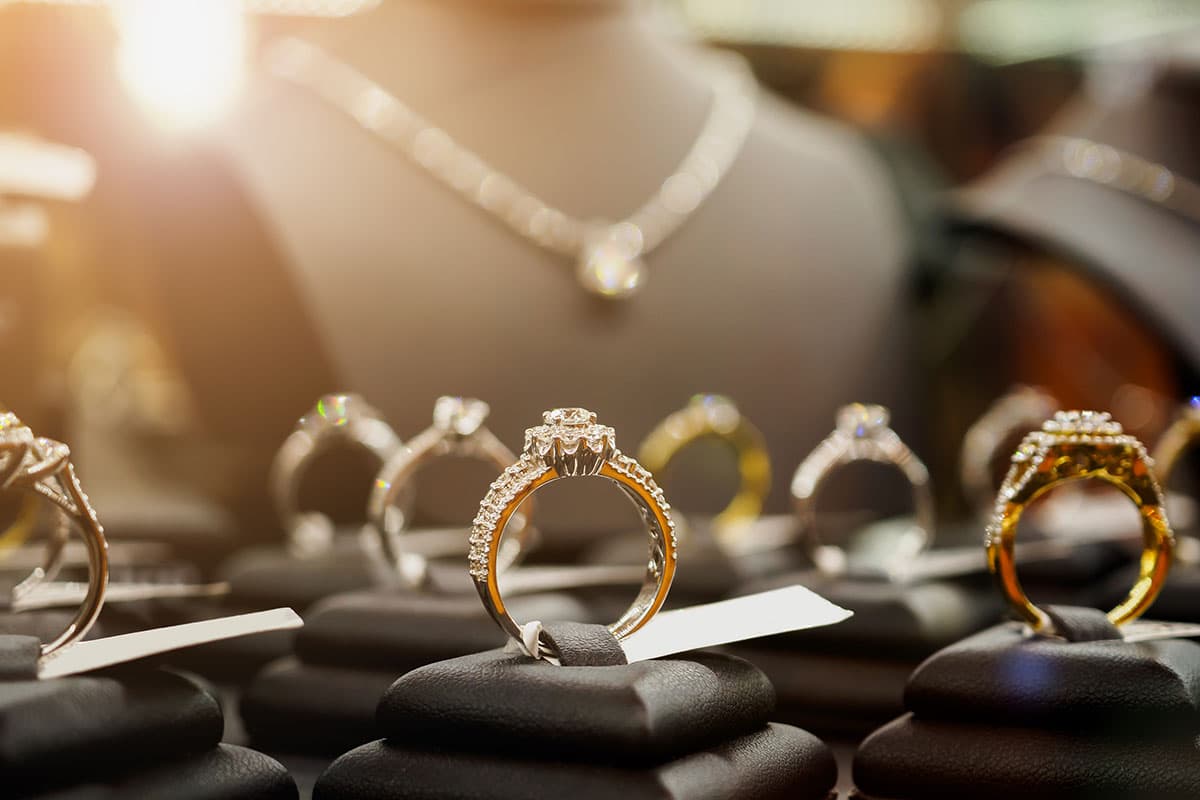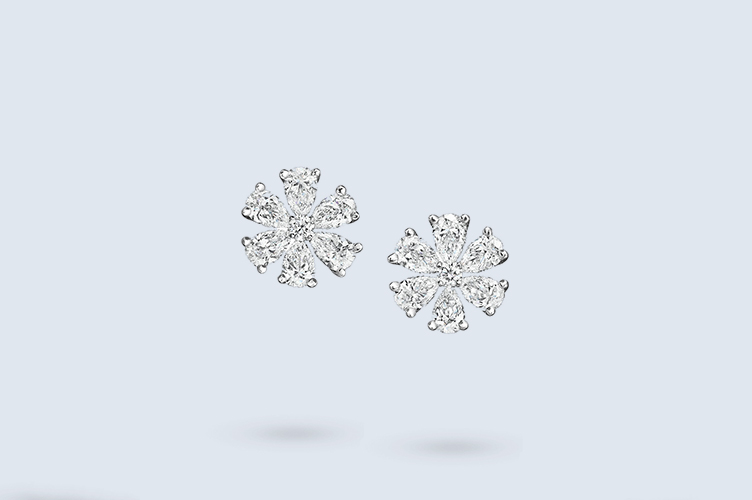How to Sell Jewelry
April 4th, 2022If you have jewelry that you don’t wear or want to downsize your current collection, selling your unwanted pieces is a smart option. You can sell your jewelry to an interested buyer or business for cash and use your earnings to invest in new items or add to your savings account.
When selling your jewelry, it’s essential to know each item’s value to avoid low offers from potential buyers. Learn where you can safely sell your jewelry and what steps to take to ensure you’re receiving a fair price.
How to Sell Jewelry
Selling your jewelry isn’t a complicated process once you understand the steps. First, you’ll need to determine who may be interested in buying your pieces. Costume jewelry and trendy pieces may appeal to individual buyers, while jewelry stores may show more interest in unique, high-quality pieces.
After choosing your target buyer, search for selling options in your area. The size of your town or city may determine interested buyers or vendors. Larger cities will have more local selling options, while those living in small towns and rural areas may prefer an online marketplace, such as an auction house. You can also find reputable online buyers for high-value pieces, such as Worthy or Circa, and for vintage costume jewelry through sites like Etsy.
Always check online reviews and testimonials to find a trustworthy seller no matter where you’re looking.
You’ll need to determine the value of your jewelry so you can price the pieces accordingly. Many local businesses appraise your jewelry in person. Online vendors can also appraise your jewelry before agreeing to the purchase.
If you’re selling to an individual buyer instead of a business, visit a local jeweler to appraise your item first and use your report during the sales process.

How to Sell Engagement Rings
If you’ve upgraded your engagement ring or recently ended a relationship, you may want to sell your engagement ring for money. Engagement rings and other expensive jewelry can fetch a fair price depending on the piece’s value: a ring’s setting, carat value, and age factor into the appraisal value and sale price.
Try selling your engagement ring directly to a jewelry store or jeweler for a quick turnaround. They can efficiently determine your ring’s value, and if the jeweler is interested, they will make you an offer for the ring.
Finding an individual buyer may require more effort. You can try making a post on a website like Craigslist or announce the sale on your social media. You should have a firm price in mind, but be ready to negotiate with an individual buyer. You should also take steps to ensure their payment before delivering the ring to avoid scam buyers.
Where to Sell Jewelry
You have many options when it comes to selling your jewelry. Local retailers, web-based companies, and auctions are a few examples. The best choice for you depends on the type of jewelry you’re selling and how quickly you want to complete your sale.
Online
Sellers can choose from online luxury consignment shops, companies that offer cash payments for gold or diamonds, and online auctioneers like Sotheby’s. Selling your jewelry online lets you access a larger pool of interested buyers than you might gather locally.
Online options are available no matter the value and quality of your pieces. Online cash buyers have fewer standards and are an excellent choice if you have lower-value jewelry you want to sell. They accept silver, gold, platinum, and diamond jewelry, and having broken jewelry doesn’t affect the appraised price.
Online cash buyers offer a quick turnaround and convenience. If you opt for selling online, you’ll ship your jewelry to them for an appraisal and quote. If you accept the offer, the buyer sends you the payment, and if you decline, they return your items.
Online consignment shops and auction houses have stricter standards for the jewelry they accept. They may have limits on the value of the jewelry. You won’t receive payment for your items until they sell, which could take days, weeks, or months. These online vendors also take a portion of the jewelry’s sale, so you won’t receive the full amount of the item’s final sale value.
Jewelry stores
National jewelry chains and local stores are another selling option. Local independent jewelry stores offer the most convenience since they are reputable buyers close to your home.
Look for jewelry stores near you that hold credentials from the American Gem Society. The American Gem Society protects consumers by maintaining a database of approved jewelers. A local jeweler appraises your pieces and likely provides you with a free quote. Jewelry stores typically buy in-demand pieces and won’t purchase damaged jewelry.
Local pawn shops
Pawn shops will offer to purchase any item, including broken pieces, costume jewelry, and watches. They won’t offer you as much for your items as a jewelry store, but they’re a quick option if you’re in a rush and need the cash. Knowing the actual value of your jewelry when selling to a pawn shop may help you negotiate a better deal.
Auctions
Estate sales and auctions are excellent for selling heirloom jewelry or rare pieces. Local auction houses may include your pieces in a community event to increase your pool of potential buyers. Auctions are the preferred option if you’re looking to sell to a collector. However, selling your jewelry through an auction can be time-consuming, and the auctioneer will take a cut of your sale.
Can I Buy Jewelry and Resell It?
You can sell any item of jewelry that you purchase, whether it’s an old piece or brand new. Some people collect specific types of jewelry to sell in their own physical or online stores. Others sell their unwanted jewelry to move on from relationships or refine their accessory collection. You can also sell jewelry to raise money for a special event or purchase more luxurious pieces.

Do Jewelry Stores Buy Used Jewelry?
Many jewelry stores buy used jewelry, though they may only purchase popular brand-name or high-end pieces. If you’re selling gold necklaces, rings, or jewelry containing diamonds, you should be able to find a store interested in your items. Consider local jewelry stores and national chains when looking for a buyer.
Your local jewelers will likely only buy pieces they know they can sell. Their price will depend on local customers’ preferences and supply and demand. Many local jewelers are willing to pay cash for your items rather than store credit.
National jewelry chains also buy used jewelry, but the process is different. Some chains offer in-store appraisals, while others ask you to mail in your jewelry. Chains are more likely to offer store credit than cash and may also give you trade-in value for your items.
If you’re looking to buy new jewelry, the trade-in value may be the better option, but you may need to avoid selling to national chains if you prefer cash. Read and understand any terms and conditions of the sale before selling to a local store or national chain to protect your interests.
Tips for Selling Your Jewelry
No matter where you sell your jewelry, following these tips can help you obtain the most value for each item:
1. Know the details of every piece
The market value of your jewelry depends on its materials and quality. Having detailed information for every necklace, ring, or bracelet helps you understand its value.
The difference between carat rating, diamond cut and clarity, and jewelry manufacturer impact the market price and an item’s perceived value. Collectors of luxury watches and fine jewelry often look for specific details. You don’t want to lose a sale because you can’t provide the information the buyer is seeking.
2. Have your jewelry independently appraised
An independent appraisal of your jewelry is beneficial whether you’re selling your pieces online, to pawn shops or jewelry stores. Knowing what your jewelry is worth may influence where you sell it. It also gives you negotiating power with sellers.
While jewelry stores offer appraisals for free, getting your own allows you to compare the reports and protects you from unscrupulous vendors. Once your jewelry is appraised, consider getting several quotes from interested buyers to find the best deal.
3. Insure your jewelry
Jewelry insurance protects your pieces from damage, loss, theft, or mysterious disappearance. These circumstances aren’t covered in your homeowner’s or renter’s insurance policy.
Having jewelry insurance gives you peace of mind when selling items. You won’t be out hundreds or thousands of dollars if a ring or necklace gets lost or stolen during the selling process. This insurance also covers jewelry repairs and maintenance, which helps retain value.
Suggested Read: How to Insure Your Jewelry?
Protect Your Jewelry with BriteCo
When you’re selling or purchasing jewelry, carrying insurance is essential. BriteCo offers comprehensive coverage for engagement rings, luxury watches, and other fine jewelry.
Our coverage limits of 125% of your jewelry’s appraised value and zero-dollar deductibles protect you when the worst happens. We automatically adjust the replacement value of your pieces each year without you having to complete additional appraisals.
Contact BriteCo today for more information or to obtain a quote on your high-value pieces through our easy online process.
Also Check:
Best Way to Sell Inherited Jewelry | BriteCo Jewelry Insurance





